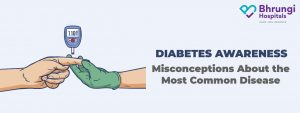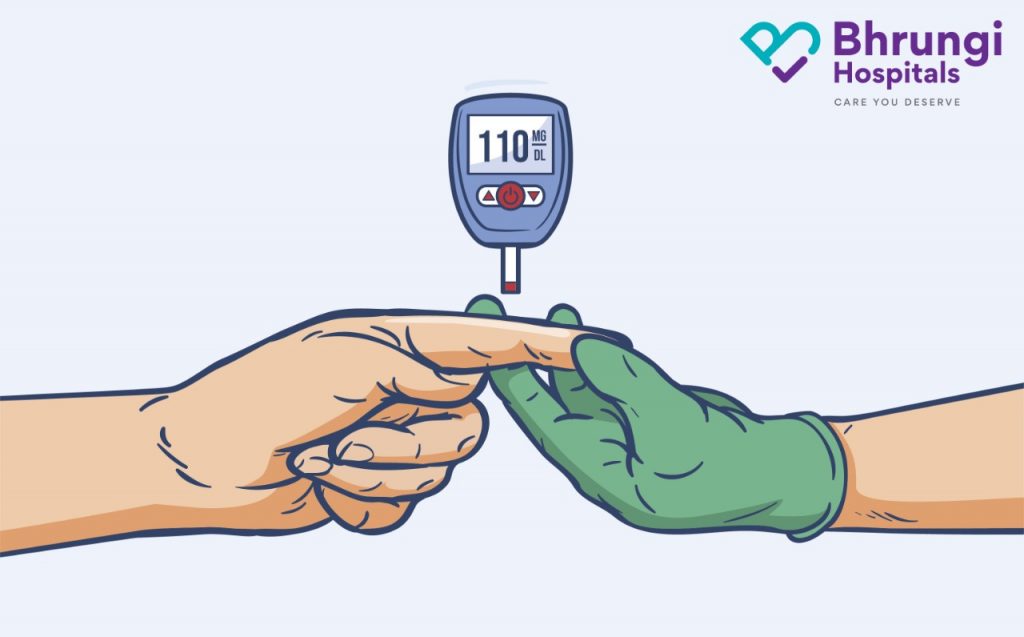
Creating awareness is the most effective way to reduce the impact of any dangerous condition, including Diabetes, in our community, state, and country. The main goal of this week is to raise awareness about Diabetes and encourage people all over the world to share their experiences living with a lifelong condition, Diabetes.
Every year, many health care organizations and communities participate in Diabetes awareness week by hosting a variety of awareness programs and fundraising events.
What is Diabetes?
Diabetes is a medical condition distinguished by hyperglycemia or blood sugar levels that are higher than usual. A lack of insulin hormone causes it.
Diabetes is expected to become a significant threat to our population’s health in the future. It is a chronic health condition that can have severe consequences in one’s life. Therefore, diabetes and its causes must be understood to reduce the risk of developing Diabetes.
Diabetes affects approximately 72 million Indians at the moment. However, most people believe they have a better understanding of Diabetes, and if anyone in their family or circle of friends has Diabetes, they begin to counsel them.
In reality, some people are aware of Diabetes, but most of us are unaware of how dangerous the disease is in the long run. It diminishes your quality of life. During this Diabetes Week, our diabetologists at Bhrungi Hospital want you to be aware of diabetes and how to manage it to take care of your health.
Eating More Sugar Doesn’t Cause diabetes.
You may have heard that a high-sugar diet causes diabetes. It’s not true; diabetes is a chronic disease that occurs when your blood sugar level rises abnormally. In a healthy person, eating more sugar does not result in diabetes. On the other hand, a high-sugar diet increases your risk of obesity and makes you susceptible to Type 2 diabetes.
Diabetes is linked to various risk factors, including hereditary, being overweight or obese, leading a sedentary lifestyle, and eating unhealthy foods.
Diabetes is a Chronic (Lifelong) Condition
Diabetes cannot be cured once it has been diagnosed because there is no permanent cure. However, with proper medication and care, the condition can be effectively managed. Even if you have diabetes, you may need to change your lifestyle habits to live a fulfilling life.
Diabetes Can Affect Anyone
It could be true because even a healthy person can develop diabetes if he leads a sedentary lifestyle. This condition can affect not only obese people but also underweight people. Diabetes can also affect older adults, middle-aged people, and even children. In fact, as a result of their lifestyle, more people with diabetes are of working age.
Type 2 Diabetes is more severe Compared to Type 1 Diabetes.
Diabetes is classified into several types, the most common of which are type 1 diabetes and type 2 diabetes. Both have the same adverse effects and cannot be compared. Instead, the disease is determined by how well you manage your blood sugar levels and other related complications.
If you do not treat any diabetes, it can lead to life-threatening complications. Diabetes complications include vision loss, kidney disease, and a reduced ability to heal wounds, as well as a tendency to damage other organs in your body. However, early diabetes diagnosis and management with proper medications and lifestyle changes can help you live your everyday life.
Diabetic People Should Not Eat Sugar
When you are being treated for diabetes, it is recommended that you strictly adhere to a sugar-free diet. People with diabetes may indulge in sweets occasionally, but only with the doctor’s approval and when their blood glucose level is under control.
Diabetes Is Emotionally Challenging
Diabetes can be emotionally difficult because it can result in depression. They are linked and increase each other’s risk. According to some researchers, diabetes and depression have similar biological causes. High blood sugar levels can cause hormonal imbalances, leading to neurotransmitter imbalances and, ultimately, depression. Diabetes can cause negative emotions such as rage, anxiety, and depression in some people.
In such cases, professional counseling can assist you in breaking free from such negative thoughts.
Insulin Is Necessary Anyway
When your blood sugar levels are incredibly high, insulin is recommended. Many people manage diabetes by adhering to a strict diet, engaging in regular exercise, and taking daily medication. However, diabetes is a chronic condition requiring insulin injections to control high blood sugar levels.
Diabetes patients with a high quality of life must regularly monitor their blood sugar levels and keep them under control with medication, a healthy lifestyle, and daily exercise. Any disease can be controlled if you are knowledgeable about it. All you need to do is need proper medical advice and maintain self-motivation to stay healthy!
Assume that one of your family members or friends has diabetes; encourage and support them. Do your part to raise awareness about this chronic condition as part of your social responsibility so that your voice can reach the right people.








